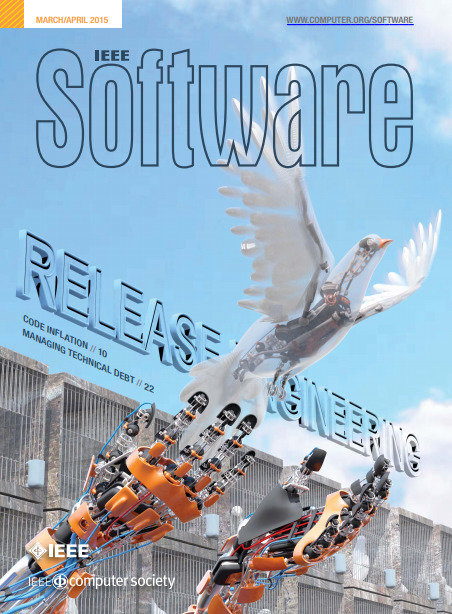Move fast and break things?

The impact of rapid releases on the rejection of software changes
Rodrigo Souza
<rodrigo@dcc.ufba.br>

Title Text
Subtitle

Salvador, Bahia, Brazil
Assistant Professor at the
Federal University of Bahia


Research interests
- Empirical software engineering
- Mining software repositories
- Release engineering
- Software quality

This talk
- Rejected changes
- issue/bug reopening
- supplementary changes
- negative code reviews
- Rapid releases
- Facebook's early motto:
"Move fast and break things" - Mozilla: 6-week releases
- Facebook's early motto:
- Are changes more likely to be rejected when we move faster?

Rejected changes

Software changes
- Software has to change
- Not all changes are created equal
- Good enough :)
- Inappropriate :(
Undetected
Bugs are shipped to users!
Detected
Rejection
Rework

- the review is negative
- the commit is reverted
- the issue is reopened
- supplementary change
- re-testing
- (i.e., rework)
Inappropriate changes
(the earlier, the better)
Inappropriate changes
how to detect them from existing repos?
how much rework do them cause?
are they more likely under rapid releases?
Data: Mozilla Foundation
- Main projects:
- Firefox
- Core (reusable code)
- Mercurial (commits) and
Bugzilla (issues/bugs) - All non-trivial code is reviewed
- All inappropriate commits are reverted
- Closed issues may be reopened




Inappropriate changes
how to detect them from existing repos?
- negative code reviews
- reverted commits
- supplementary commits
- reopened issues


Negative code reviews
- Very early rejection
- Problems in the code
- coding style
- design
- performance
- potential bugs
- Not all projects perform reviews on all changes


Reverted commits
- A commit that reverts a previous commit
- In Mercurial, revert = "backout"
- Can be early or late in the process
- Rejection due to problems found during automated or manual testing
- Very few projects actually revert commits

changeset: 0a93ae68184e summary: Bug 787078 - Backout 43dd8252f52d
Supplementary commits
- 2+ commits for the same issue
- Can be early or late in the process
- Not always a sign of problems
- Multipart commits
- Easily detectable

changeset: 0a93ae68184e summary: Bug 1635 - add info button changeset: 394bf8a8e9fa summary: Bug 1635 - fix button behavior
Issue reopening
- Problem found after issue was closed
- Late in the process
- Not always because of problems in the change itself
- Tester used the wrong version
- Issue was prematurely closed
(e.g., duplicate, wontfix)
- In some projects, a new issue is created



supplementary commits
reverted commits

Core

supplementary commits
reverted commits
Part 1: ... Part 2: ...

Core

reopened issues
commits reverted after issue is closed

Core
Inappropriate changes
how much rework do them cause?
rejected changes

negative reviews
reverted commits
reopened issues
21%
12%
8%
5%
(among changes associated with issues, reviews, and commits)


Core
5 rejections
per day
1 rejection
per day
How often are changes rejected?
Inappropriate changes
are they more likely under rapid releases?
Rapid Releases

Release approach
Feature-based
Time-based
Traditional releases
Rapid releases
(short cycles)
Rapid releases
and quality
Frequent delivery => more feedback
Tighter deadlines => less time for testing
Rapid releases
and time pressure
Hurry to ship a feature in the next release
"If I don't ship now, I can ship in a few weeks"
vs.
Traditional
Before March 2011
12+ months btw releases
Rapid
After March 2011
6 weeks btw releases

Transition to rapid releases
- Annoying update notifications!
- My extensions are broken!
- My company needs stability!

(users' viewpoint)
What about rejections?

issues w/ reverted commits
the rejection rate is increasing!
... or is it?


.
.
.
Early vs late rejections

early reverts
problems are detected earlier
late reverts
You have to understand the process
main branch
pull
push
automated build:
wait for build...
or
(broken)
revert and push
Before
main branch
pull
push
revert and push
After
staging branch

build sheriff
merge


Conclusions
- Naïve conclusion: with rapid releases...
- developers are breaking the system more often
- hence, they perform more rework
- After talking to developers: with rapid releases...
- they perform less testing before pushing changes
- the main branch is rarely broken
- For users:
- late rejections decreased (fewer bugs are shipped)
- updates arrive frequently
- corporate users have extended support releases

References
R. SOUZA. Inappropriate Software Changes: Rejection and Rework (PhD Thesis)
http://rodrigorgs.github.io/files/rodrigo-thesis-final.pdf
SOUZA, R. ; CHAVEZ, C. ; BITTENCOURT, R. A.
Rapid Releases and Patch Backouts: A Software Analytics Approach
In: Software, IEEE, 2015.
http://online.qmags.com/ISW0315#pg91&mode2
Other related publications
http://rodrigorgs.github.io/publications
Move fast and break things?

The impact of rapid releases on the rejection of software changes
Rodrigo Souza
<rodrigo@dcc.ufba.br>
(extra slides)
Before
- All changes were pulled from and pushed to one single branch
- Each change triggered a build (compile + test), which lasted ~ 4h
- A broken build affected all developers
- The developers was responsible for reverting his/her commit
After
- Automated builds are still run and are still slow
- Changes are pulled from the main branch and pushed to a staging branch
- Upon a succesful build, sheriffs merge the two branches
- Upon a broken build, sheriffs revert the offending commits
Broad questions
- How to detect inappropriate changes before they reach end users?
- How to avoid creating inappropriate changes in the first place?
- what are the characteristics of changes that end up being rejected?
- what characteristics of the process lead to increased rejection?